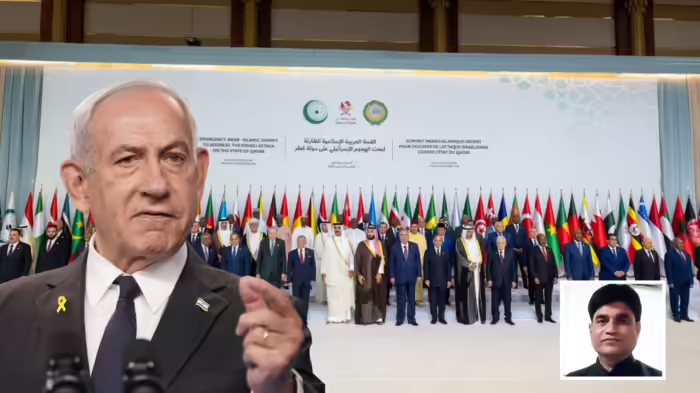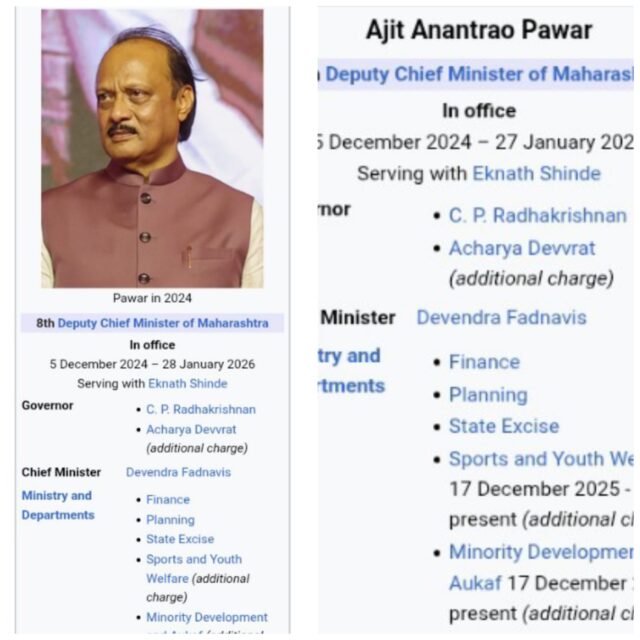Saudi Arabia, Iran… The Islamic world doesn’t trust Qatar, and the plan for a joint attack by Muslim countries on Israel fails.

Nearly 60 Arab-Islamic countries participated in an emergency summit in Doha
Nearly 60 Arab-Islamic countries participated in an emergency summit in Doha, Qatar’s capital, to protest the Israeli aggression. Despite Qatar’s best efforts, no decisive agreement could be reached among Islamic countries on economic sanctions or joint military action against Israel. A key reason for this is Qatar’s image in international politics, which portrays it as an unreliable ally. This small Gulf nation, rich in oil and gas, faces deep suspicion and distrust within the Islamic world and beyond. Qatar has been striving to expand its influence within the Islamic world through its energy wealth and the Al-Jazeera media network. However, its ambitions and strategic deceptions have alarmed the Islamic world, Israel, and the United States.
On the one hand, Qatar has made the United States and Western powers its security partners, while on the other, it has maintained close ties with terrorist groups like Hamas, Al-Qaeda, ISIS, the Muslim Brotherhood, and the Taliban. This contradictory policy has left its allies confused and distrustful. Qatar’s closeness to Shia-majority Iran makes Sunni-majority Arab countries feel insecure, directly affecting the balance of power. Qatar is accused of promoting peace and mediation, but behind the scenes, it also supports terrorist groups. Qatar has provided Hamas with political, economic, and diplomatic support for decades.
Qatar Provides Billions of Dollars to Hamas
Doha not only hosts senior Hamas leadership but has also provided billions of dollars in financial aid to the Hamas-controlled government in Gaza. This policy makes it an influential player in the Islamic world but also a source of deep distrust among its allies. Qatar is a major non-NATO ally of the United States. The United States and the European Union have designated Hamas a terrorist organization, yet Qatar actively supports it. Qatar has successfully established itself as a key negotiator in the Hamas-Israel conflict. Qatar’s policy exposes its strategic acumen and deception.
On the one hand, Qatar benefits from US security guarantees and cooperation, while on the other, it establishes itself as an indispensable mediator in regional politics by maintaining close ties with organizations like Hamas. However, this contradictory stance breeds deep distrust within the Islamic world and poses a difficult question for Washington: whether it should pressure Qatar to close Hamas offices, expel Hamas leaders, and withhold financial aid. Qatar’s ambitious and duplicitous policies certainly bring it immediate benefits, but in the long term, they deepen the crisis of trust among its allies in international politics and the broader Islamic world.
Qatar’s Emir Visits Gaza
Shortly after Hamas forcibly occupied Gaza in 2007, Qatar’s then-Emir Sheikh Hamad became the first world leader to visit Gaza. During this visit, he pledged $400 million in economic aid, providing implicit international recognition and legitimacy to the Hamas-controlled regime. Following this, Qatar has consistently provided billions of dollars in financial aid to Gaza. Approximately one-third of Qatar’s aid to Hamas is provided in the form of fuel. Hamas officials sell this fuel in cash, and the proceeds are used to fund the organization’s activities. Furthermore, Hamas also uses salaries and other financial aid coming into Gaza to generate bribes and illegal funds. Hamas has been supported by Iran, despite being sanctioned by Saudi Arabia and the United Arab Emirates. Qatar appears to be supporting Iran in this regard.
Hamas’s political and financial infrastructure has long been protected in Qatar. Doha not only provides direct financial support to Gaza but also provides safe haven to the organization’s top leaders. Hamas’s political bureau chief, Ismail Haniyeh, has long resided in Qatar, strengthening Hamas. From Qatar, the Hamas leadership is active in provoking international politics and pushing the Islamic world toward conflict. It has also emerged that Hamas leaders live in five-star hotels in Doha and have assets worth over $4 billion. This situation creates a sharp contrast between Hamas’s image of resistance and the dire humanitarian situation of the people in Gaza. Al Jazeera is owned by the Qatari government and effectively serves as the state’s media mouthpiece. The network regularly praises Hamas’s violent activities.
The Emir of Qatar approved the attack on Israel!
In November 2023, Qatar’s Prime Minister, Mohammed bin Abdel Rahman al-Thani, claimed that Qatar established relations with Hamas to maintain peace and stability in the region. This statement reflects Qatar’s image as a mediator and a supporter of peace. However, in practice, Doha’s cooperation with Hamas has proven to promote violence rather than peace. Since Hamas’s forceful occupation of Gaza in 2007, Qatar has consistently been the organization’s largest political and economic ally. All this suggests that Qatar’s aid has strengthened Hamas’s governance and military capabilities. Instead of improving the situation for the civilian population in Gaza, this support has allowed Hamas to become more aggressive.
Qatar is said to be Hamas’s most important financial supporter and foreign ally. Qatar has consistently provided Gaza with millions of dollars in aid for several years. A portion of this aid subsidized the salaries of the Hamas government and was sent to Gaza with Israeli approval. Israel’s Shin Bet security agency has assessed that the flow of funds from Qatar to Gaza and its access to Hamas’s military wing helped Hamas prepare its forces ahead of October 7, 2023. Furthermore, documents recovered by Israeli troops in Gaza reinforce the existence of a secret funding channel between Qatar and Hamas. A 2021 document also revealed that Hamas’s political chief, Ismail Haniyeh, reportedly told Yahya Sinwar, the mastermind of the October 7, 2023, attacks, that Qatar’s Emir, Sheikh Tamim bin Hamad al-Thani, had agreed in principle to Hamas’s military operations.
Hamas has maintained a political office in Doha since 2012. This office remains open, and Hamas officials reportedly operate freely in Qatar. Former Hamas leader Ismail Haniyeh lived in Doha from 2016 until his death in 2024. Israel has consistently acknowledged Qatar’s role due to the US’s trust in Qatar. However, last year, the US urged Qatar to remove Hamas leaders from its territory if they did not agree to a hostage deal with Israel. When Qatar failed to reach an agreement with Hamas regarding the hostages, its double-deal to strengthen Hamas against Israel was exposed. This is why Netanyahu decided to target Hamas leaders in Qatar. Interestingly, Netanyahu claimed that both Qatar and the US had been informed in advance of the attack on Doha.
Qatar is nurturing terrorists from Syria to Iraq
Qatar’s role in providing financial and political support not only to Hamas but also to several dangerous Islamist groups influential in other parts of the world has been exposed. Qatar’s largest NGO, Qatar Charity, has been found to have played a key role in providing financial support to al-Qaeda. Qatar sponsored al-Qaeda’s affiliate, al-Nusra Front, in Syria, which led to the ouster of Iran-backed Assad. In this regard, Qatar stood with Saudi Arabia, unlike Iran. Furthermore, Abdul Karim al-Thani, a member of the Qatari royal family, provided a safe haven for Abu Musab al-Zarqawi, the founder of al-Qaeda in Iraq. In 2014, former Iraqi Prime Minister Nouri al-Maliki stated that Qatar initiated the civil war in Iraq and Syria and incited and encouraged terrorist movements like the Islamic State and al-Qaeda, supporting them through political and media funding and purchasing weapons.
Qatar’s dual role has repeatedly placed Shia-led Iran and Sunni superpower Saudi Arabia in a dilemma. Europe and the United States are well aware that Qatar, on the one hand, portrays itself as a mediator in peace talks, while on the other, it patronizes and provides economic and political power to terrorist organizations. Clearly, Qatar’s double standards make it unreliable within the Islamic world, and neither Europe nor the United States can blindly support it.







